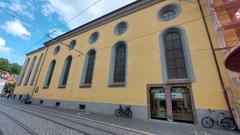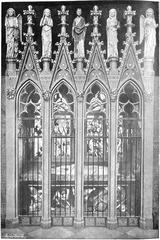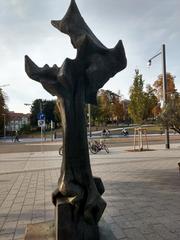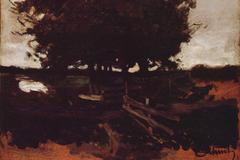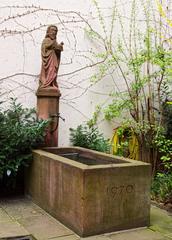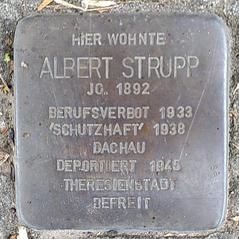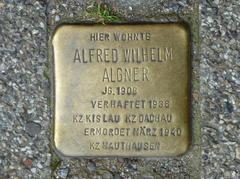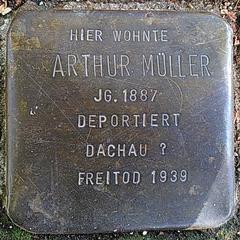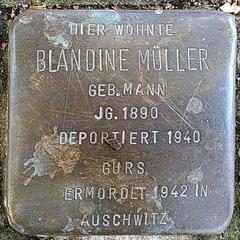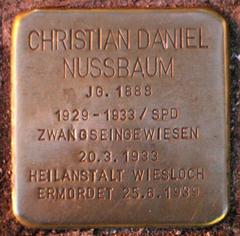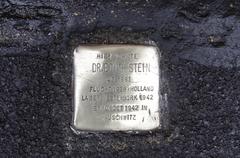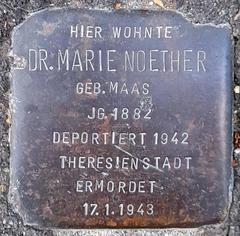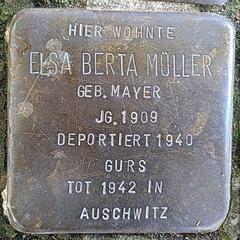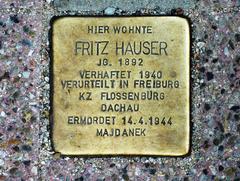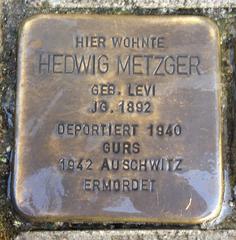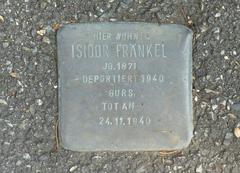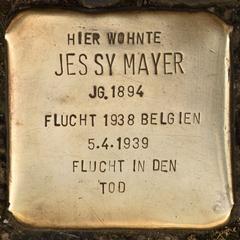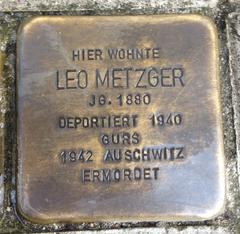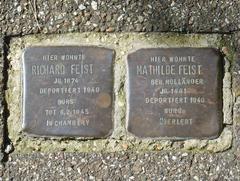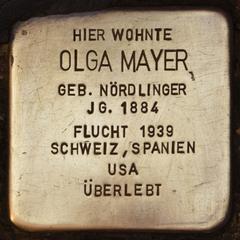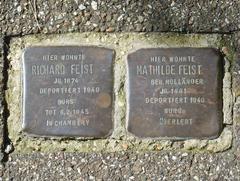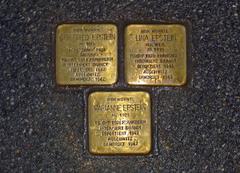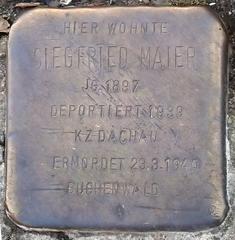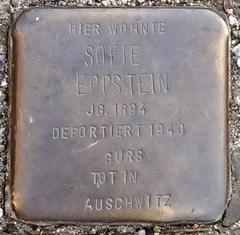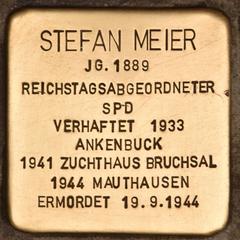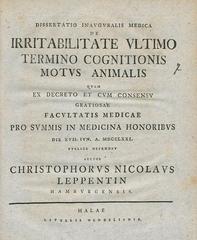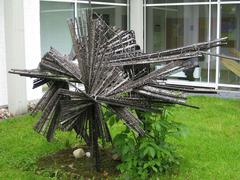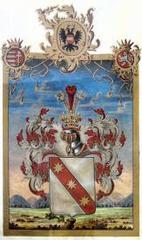
Merchants Hall Freiburg: Comprehensive Guide to Visiting Hours, Tickets, and Historical Highlights
Date: 04/07/2025
Introduction
Rising above Freiburg im Breisgau’s vibrant Münsterplatz, the Historical Merchants’ Hall (Historisches Kaufhaus) is a symbol of the city’s Renaissance splendor, mercantile legacy, and enduring civic spirit. Originally constructed in the 14th century and transformed into its present form during the early 16th century, this landmark has served as a center for trade, governance, and cultural life—its iconic red sandstone façade, ornate oriel windows, and statues of Habsburg emperors reflecting both Freiburg’s economic prowess and its deep ties to imperial history.
Today, the Merchants’ Hall continues to play a dynamic role as a venue for concerts, exhibitions, and public events, while offering visitors a window into centuries of architectural innovation and civic identity. This detailed guide brings together essential information on the building’s history, visiting hours, ticketing, accessibility, and practical tips for exploring both the Hall and its rich urban surroundings. For the latest updates, always consult official resources and visitor platforms (Historisches Kaufhaus Official Website, Wikipedia).
Table of Contents
- Historical Overview
- Architectural Evolution
- Civic, Economic, and Cultural Significance
- Visiting Information
- Architectural Features
- Visitor Experience and Nearby Attractions
- Practical Tips
- Frequently Asked Questions (FAQ)
- Conclusion
- References
Historical Overview
Origins and Growth
The Merchants’ Hall’s roots trace to the early 14th century, when Freiburg emerged as a commercial hub in the Upper Rhine region. First documented in 1378, the building began as a modest hall for merchant activities, strategically positioned adjacent to the city’s market square and the Freiburg Minster. Its location underscores the Hall’s foundational role in shaping Freiburg’s daily civic and economic life (Wikipedia).
Renaissance Transformation
Between 1520 and 1532, the Hall underwent a complete Renaissance makeover. Commissioned by the city council and designed to reflect Freiburg’s wealth and growing influence within the Holy Roman Empire, the new façade featured crimson-red sandstone, ornate oriel windows, and decorative coats of arms. These embellishments celebrated both local pride and allegiance to the Habsburg dynasty, whose emperors’ statues—Maximilian I, Charles V, Ferdinand I, and Rudolph II—still grace the façade (Guide to Europe).
Later Uses and Restorations
The Hall has seen Baroque modifications, wartime damage, and multiple restorations, notably following bombings in the Napoleonic era and World War II. Throughout, its Renaissance character has been preserved, with modern renovations (including a major restoration in 1988) ensuring functionality and historical authenticity (Wikipedia).
Architectural Evolution
Façade and Ornamentation
The Merchants’ Hall is instantly recognizable for its vibrant red façade, gold and green accents, and crow-stepped gables that lend a vertical emphasis. The ground floor features arcades providing shelter to merchants and visitors, while the upper stories are adorned with finely carved oriel windows and reliefs (panoramastreetline.com).
Interior Spaces
- Kaisersaal (Emperors’ Hall): The grand ceremonial hall with oak columns and vaulted ceilings, historically used for receptions and now for concerts and events.
- Rokokosaal (Rococo Room): Noted for its ornate 18th-century stuccowork, ideal for readings and chamber music.
- Kaminsaal (Fireplace Room): A cozy retreat featuring a 15th-century fireplace, accessible via a spiral staircase.
- Courtyard: Once a storage area for goods, today it is the site of outdoor events like the “Freiburg Weinkost” wine tasting.
Civic, Economic, and Cultural Significance
Economic and Political Center
As the seat of the merchants’ guild, the Hall regulated trade, set market standards, and resolved commercial disputes. It was pivotal in city governance, often hosting council meetings and imperial receptions—especially in the era of Habsburg rule, as evidenced by the imperial heraldry and statues (Visit Freiburg).
Cultural Landmark
Beyond its economic legacy, the Merchants’ Hall has long been a venue for banquets, concerts, and exhibitions. After World War II, it even served as the legislative building for South Baden, anchoring its status as a center of public life (Wikipedia).
Adaptive Reuse and Education
The Hall now houses the Freiburg Society for History and offers museum exhibits tracing the city’s evolution. Scavenger hunts, self-guided audio tours, and interactive activities engage visitors of all ages (World City Trail).
Visiting Information
Opening Hours
- General Public: There are no fixed daily visiting hours for interior spaces. Exterior viewing is always available.
- Events and Special Access: Interior rooms are accessible primarily during scheduled events, concerts, or heritage days.
- Typical Event Hours: Vary by event, but often in the late afternoon or evening.
Always check the official event listings and city’s cultural calendar for up-to-date access information.
Tickets
- Exterior/Public Arcade: Free access.
- Event Access: Tickets required for concerts, exhibitions, and wine tastings. Prices vary by event.
- Booking: Purchase tickets online via event organizers or at the city’s cultural office. Early booking is advised for popular events.
Accessibility
- Ground Floor and Courtyard: Wheelchair accessible with ramps; accessible restrooms available during events.
- Upper Floors: Some historic staircases may limit access (e.g., Kaminsaal).
- Assistance: Contact event organizers or the visitor center for personalized support.
Guided Tours
- Availability: Offered during special events, heritage days, or by appointment for groups.
- Languages: German and English.
- Booking: Reserve via the city’s tourism website or at the tourist information center on Münsterplatz.
Best Times to Visit
- Plan around public events for interior access.
- The Münsterplatz hosts lively farmers’ markets on Wednesdays and Saturdays.
- Late afternoon offers the best exterior photography light and fewer crowds.
Architectural Features
- Red Sandstone Façade: Distinctive, richly ornamented with coats of arms, gilded statues, and green accents.
- Oriel Windows: Ornate Renaissance bay windows with heraldic carvings and glazed tiles.
- Crow-Stepped Gables: Step-shaped rooflines typical of German Renaissance architecture.
- Imperial Statues: Representing Maximilian I, Charles V, Ferdinand I, and Rudolph II.
- Arcaded Walkways: Sheltered ground floor arcades for pedestrians and merchants.
- Event Halls: Kaisersaal, Rokokosaal, Kaminsaal, and the inner courtyard.
Visitor Experience and Nearby Attractions
Viewing the Exterior
The Hall’s façade is a focal point on Münsterplatz, especially striking in golden-hour light. The arcades offer a unique vantage point for observing the bustling square, markets, and street performances.
Attending Events
Interior access is typically granted during scheduled public events such as classical concerts, readings, or the annual “Freiburg Weinkost” wine tasting. These offer a rare chance to experience the Kaisersaal and other historic rooms.
Exploring the Surroundings
- Freiburg Minster: Gothic cathedral directly facing the Hall.
- Augustiner Museum: Regional art and history nearby.
- Martin’s Gate: Historic city gate within walking distance.
- Wentzingerhaus: Baroque city history museum.
Food and Drink
Münsterplatz and its surroundings are home to cafés and restaurants serving local specialties like Black Forest cake and Baden wines. During events, local products are often available inside the Hall.
Practical Tips
- Weather: Münsterplatz is exposed; bring sun protection in summer and warm layers in winter.
- Photography: Exterior photography is encouraged. Interior policies vary by event.
- Accessibility: Most ground-floor areas are accessible; check event details for upper-floor access.
- Transport: The main train station is a short tram ride away. Parking is available in nearby garages.
Frequently Asked Questions (FAQ)
Can I visit the Hall’s interior without attending an event?
Generally, no. Interior access is reserved for special events and guided tours.
Are guided tours available?
Yes, occasionally during special events or by group appointment. Check the tourism website for schedules.
Is the Hall wheelchair accessible?
The courtyard and ground floor arcades are accessible; some upper rooms may not be due to historic staircases.
How do I purchase tickets for events?
Online through event organizers or at the city’s cultural office. Early booking is advised.
Where can I find official visitor information?
Visit the official website and Freiburg Tourism Office.
Conclusion
The Historical Merchants’ Hall is a jewel of Freiburg’s historic center, blending Renaissance artistry with centuries of civic and commercial tradition. While everyday interior access is limited, planning your visit around special events or guided tours ensures a memorable experience. Coupled with the lively atmosphere of Münsterplatz and proximity to other landmarks, the Hall offers a rich tapestry of history, architecture, and contemporary culture.
For the latest updates, event schedules, and ticket information, always consult official resources. Download the Audiala app for guided audio tours and insider tips, and follow local channels for exclusive offers and news.
References and Further Reading
- Historisches Kaufhaus Official Website
- Historical Merchants’ Hall (Freiburg) – Wikipedia
- The Crazy Tourist – Best Things to Do in Freiburg
- Guide to Europe – Historical Merchants’ Hall
- Outdooractive – Historical Merchants’ Hall
- Visit Freiburg: Historical Merchants’ Hall
- World City Trail – Historic Merchants’ Hall in Freiburg




